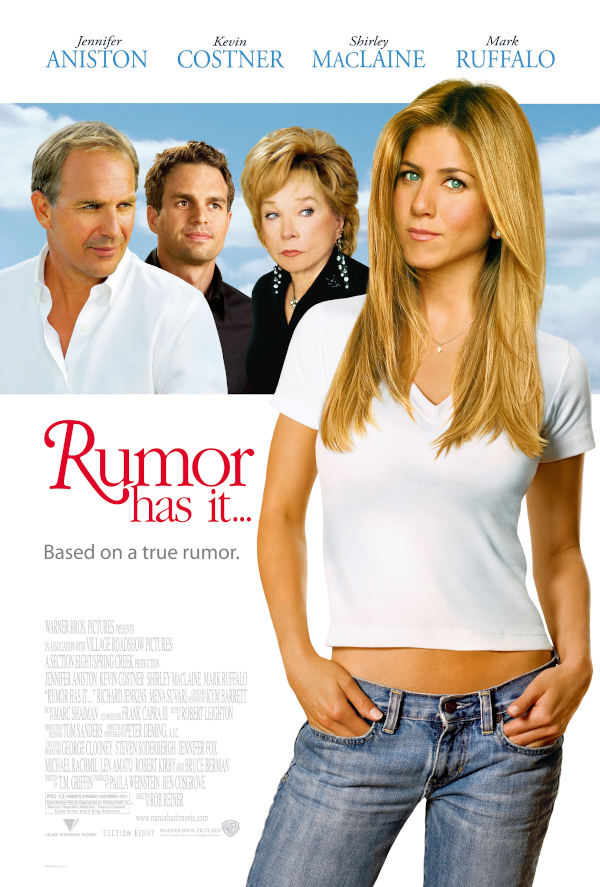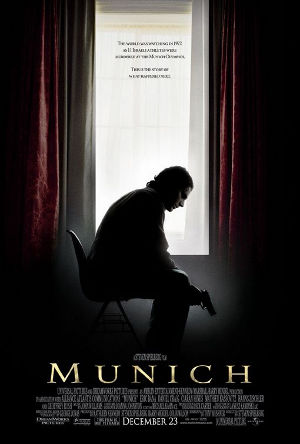Poorly Produced
Ugh…The Producers is a staged remake of the Broadway show which was remade from the original movie starring Gene Wilder and Zero Mostel. So it’s a remake of a remake (of a sort) and it feels like it. Is it bad when the Springtime for Hitler number is the most professionally done (and still nowhere near as good as the original) of, well anything, in the film?
The Producers (2005)
1 Star
I never went to see the play The Producers, until now. I say that because the film looks like so much like a stage show that I wondered why they didn’t just tape a Broadway performance on Betamax and distort the image through a projector onto the screen. I guess that would have aimed too high.
I am a huge fan of the original film which I consider to be Mel Brooks’ funniest film (though not best, here’s that review). I could have lived without seeing the never-ending disaster that Susan Sroman, Matthew Broderick, Nathan Lane, and Uma Thurman create out of such a great script.
 |
The story more closely follows the stage version rather than the original movie which involves producer Max Bialystock (Nathan Lane) and accountant Leo Bloom (Matthew Broderick) deciding to produce the biggest flop on Broadway, sell off more than the play is worth to backers, and pocket the cash when the play closes opening night. A great plan, but this is a comedy so what happens? The worst musical in the world Springtime for Hitler becomes an instant smash success and the talk of Broadway!
I would have preferred to watch a two hour version of Springtime for Hitler or Police Academy 6: City Under Siege or even receive a caning. Everything goes wrong here except life doesn’t imitate art and this flop sadly never becomes a hit. Mel Brooks wrote the roles of Leo and Max specifically for Gene Wilder and Zero Mostel. Broderick and Lane just can’t fill their shoes. Even in the best moments of this movie (all three of them) the feeling of “yeah, but that’s still not as good” comes to mind.
Broderick doesn’t have Wilder’s innocence and fragility. The actor that as a kid pulled off the super confident Ferris Beuller just doesn’t fit the insecure Leo Bloom. Lane is a little better, though he too is doing more of an impression than his own character. The whole movie feels like a Saturday Night Live skit based on the original movie rather than a movie of its own.
The story has evolved, changed, and lengthened as Mel Brooks turned it into a play. Part of the problem was giving the helm to stage director Susan Stroman who never makes the necessary changes to take the Broadway musical and turn it back into a film. The timing and action of the piece, the sets and musical numbers, all seem out of place on film.
I’ll give you an example of how the new model fails to live up to the original:
After waiting roughly 105 minutes for the curtain to finally rise on Springtime for Hitler (the original is a total of 88 minutes, versus this 134 minute version) what we get is truly disappointing. In the original the full musical number is performed including cannons, singing Nazis, a choreographed swastika dance, flags and banners. As the number ends the camera pans to a stunned audience except for one man who is beaten down for his jubliant applause. The audience starts to leave and is only stopped by LSD’s (Dick Shawn) performance (a character NOT included in this version). FUNNY!
 |
Lane and Broderick try to hide from anyone who has seen this film |
So what does this version do? It pans to the audience several times during the opening number showing shock before anything really shocking occurs on stage and the audience actually accepts and applauds before and during the swastika number accepting and appreciating it. Confusing and UNFUNNY!!
Also missing is the bar scene where Leo and Bloom’s celebration is cut short by the terror of intermission as they hear the audience praising the play, and the ending that includes the plot to blow up the theater.
The film is full of such changes. The removal of LSD as a character broadens the one-joke characters of writer Franz Leibkind (Will Farrell) and Roger de Bris (Gary Beach). Problems start to occur immediately however as the actors are asked to do too much with such limited roles. The film also makes de Bris and his band into crude, stereotypical, and tasteless gay caricatures. How bad is it? The Village People appear (no, that’s not a joke, though I guess Brooks thought it would be). Farrell is fine as Leibkind but has to improv too much as his character, like all the rest, is on screen too long.
Uma Thurman plays Ulla the Swedish secretary. She actually is pretty good in the role (though was her make-up person blind? or maybe cross-eyed?). Her accent comes and goes (especially during the signing numbers) but she comes off better than most of the cast. Yet here again a one-joke character from the original “Bialystock and Blum, got dag pa dig” is stretched thin in an unecessary lengthy role.
Don’t pay a dime for this; save your money and go out and get the DVD of the original 1968 version of The Producers. This version is just a waste of a theater that could be showing something better (like Narnia or Kong or a three hour documentary on yeast infections). Hopefully people will stop trying to remake Wilder’s films now, but I have this horrible fear that I’ll see a new Silver Streak with Owen Wilson and Chris Tucker announced any day now. Stop trying to ruin the films I love and just get back to making more Hollywood crap that people so enjoy…hey I hear Fantastic Four 2 is on its way.







